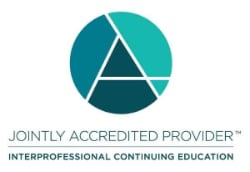Addiction and Recovery 2023: The Latest Findings from Neuroscience Research
Addiction and Recovery 2023: The Latest Findings from Neuroscience Research
The Latest Findings from Neuroscience Research
Presented By
-
 Kevin McCauley, MD, MPHMore Info
Kevin McCauley, MD, MPHMore Info
Brought to You By
Dates and Times
-
-In-Person
Location
-
Southern Hemisphere III, IV, VWalt Disney World Dolphin Resort
Lake Buena Vista, FL 32830
Research in neuroscience provides an evidence-based and comprehensive understanding of addiction that fits well with the experiences of people needing, seeking, and in recovery. There are several insightful and well-articulated arguments challenging the disease conceptualization of addiction, but two important areas of research – epigenetics and psychoneuroimmunology – greatly advance awareness of how environmental stress creates vulnerability to addiction. This lecture reviews the most up-to-date science of addiction, the current arguments for and against addiction’s conceptualization as a disease, and how the principles of recovery management counter the pathophysiology of addiction and improve a recovering person’s chances of achieving long-term recovery.
- • Counselors
- • Addiction Counselors
- • Social Workers
- • Licensed Marriage and Family Therapists
- • Physicians
- • Nurses
- • Psychologists
At the end of this course, participants will be able to:
-
Describe the latest neuroscientific explanations of substance use disorder pathophysiology and interpret Substance Use Disorder symptomology in light of this research.
-
Describe and analyze the arguments for and against the conceptualization of addiction as a brain disease.
-
Define psychoneuroimmunology and explain its connection to substance use disorder.
-
Define social determinants of health and explain the role they play in vulnerability to substance use disorder.
-
Alexander, B. K., Coambs, R. B., & Hadaway, P. F. (1978). The effect of housing and gender on morphine self-administration in rats. Psychopharmacology, 58(2), 175–179. https://doi.org/10.1007/bf00426903
-
American Psychiatric Association. (2013). Diagnostic and statistical manual of mental disorders (5th ed.). Washington, DC: Author.
-
American Society of Addiction Medicine - Definition of Addiction. (2019, September 15). Retrieved July 22, 2020, from https://www.asam.org/resources/definition-of-addiction
-
Duffy T. P. (2011). The Flexner Report--100 years later. The Yale journal of biology and medicine, 84(3), 269–276.
-
George, O., & Koob, G. F. (2017). Individual differences in the neuropsychopathology of addiction. Dialogues in Clinical Neuroscience Addiction, 19(3), 217–229. https://doi.org/10.31887/dcns.2017.19.3/gkoob
-
Kalivas, P. W., Knackstedt, L., Moussawi, K., & Shen, W. (2009). Glutamate Homeostasis Theory of Addiction. PsycEXTRA Dataset. doi:10.1037/e602622009-001
-
Kandel, E. R., & Kandel, D. B. (2014). A Molecular Basis for Nicotine as a Gateway Drug. New England Journal of Medicine, 371(10), 932-943. doi:10.1056/nejmsa1405092
-
Kohno, M., Link, J., Dennis, L. E., Mccready, H., Huckans, M., Hoffman, W. F., & Loftis, J. M. (2019). Neuroinflammation in addiction: A review of neuroimaging studies and potential immunotherapies. Pharmacology Biochemistry and Behavior, 179, 34-42. doi:10.1016/j.pbb.2019.01.007
-
Koob, G. F. (2020). Neurobiology of Opioid Addiction: Opponent Process, Hyperkatifeia, and Negative Reinforcement. Biological Psychiatry, 87(1), 44-53. doi:10.1016/j.biopsych.2019.05.023
-
Lacagnina, M. J., Rivera, P. D., & Bilbo, S. D. (2016). Glial and Neuroimmune Mechanisms as Critical Modulators of Drug Use and Abuse. Neuropsychopharmacology, 42(1), 156-177. doi:10.1038/npp.2016.121
-
Lewis, M. (2018). Brain Change in Addiction as Learning, Not Disease. New England Journal of Medicine, 379(16), 1551-1560. doi:10.1056/nejmra1602872
-
Marmot, M. (2005). Social determinants of health inequalities. The Lancet, 365(9464), 1099–1104. https://doi.org/10.1016/s0140-6736(05)74234-3
-
Prom-Wormley, E. C., Ebejer, J., Dick, D. M., & Bowers, M. S. (2017). The genetic epidemiology of substance use disorder: A review. Drug and alcohol dependence, 180, 241–259. https://doi.org/10.1016/j.drugalcdep.2017.06.040
-
Substance Abuse and Mental Health Services Administration (US), & Office of the Surgeon General (US). (2016). Facing Addiction in America: The Surgeon General's Report on Alcohol, Drugs, and Health. US Department of Health and Human Services.
-
Volkow, N. D., Michaelides, M., & Baler, R. (2019). The Neuroscience of Drug Reward and Addiction. Physiological Reviews, 99(4), 2115-2140. doi:10.1152/physrev.00014.2018
-
Volkow, N., Baler, R., & Goldstein, R. (2011). Addiction: Pulling at the Neural Threads of Social Behaviors. Neuron,69(4), 599-602. doi:10.1016/j.neuron.2011.01.027
TPN.health has been approved by NBCC as an Approved Continuing Education Provider, ACEP No. 7267. Programs that do not qualify for NBCC credit are clearly identified. TPN.health is solely responsible for all aspects of the programs.
Course meets the qualifications for hours of continuing education credit for LPCCs as required by the California Board of Behavioral Sciences. TPN.health is approved by the California Association of Marriage and Family Therapists to sponsor continuing education for LPCCs. TPN.health maintains responsibility for this program/course and its content.
Trusted Provider Network, LLC is recognized by the New York State Education Department’s State Board for Mental Health Practitioners as an approved provider of continuing education for licensed mental health counselors. #MHC-0220.
This course has been approved by TPN.health, as a NAADAC Approved Education Provider, for educational credits. NAADAC Provider #198061, TPN.health is responsible for all aspects of the programming. Counselor Skill Group: Legal, Ethical and Professional Development.
TPN.health, #1766, is approved to offer social work continuing education by the Association of Social Work Boards (ASWB) Approved Continuing Education (ACE) program. Organizations, not individual courses, are approved as ACE providers. State and provincial regulatory boards have the final authority to determine whether an individual course may be accepted for continuing education credit. TPN.health maintains responsibility for this course. ACE provider approval period: 03/31/2022 – 03/31/2025. Social workers completing this course receive 1 continuing education credit.
Course meets the qualifications for hours of continuing education credit for LCSWs as required by the California Board of Behavioral Sciences. TPN.health is approved by the California Association of Marriage and Family Therapists to sponsor continuing education for LCSWs. TPN.health maintains responsibility for this program/course and its content.
Trusted Provider Network, LLC is recognized by the New York State Education Department’s State Board for Social Work as an approved provider of continuing education for licensed social workers #SW-0654.
Course meets the qualifications for hours of continuing education credit for LCSWs as required by the California Board of Behavioral Sciences. TPN.health is approved by the California Association of Marriage and Family Therapists to sponsor continuing education for LMFTs. TPN.health maintains responsibility for this program/course and its content.
Trusted Provider Network, LLC is recognized by the New York State Education Department’s State Board for Mental Health Practitioners as an approved provider of continuing education for licensed marriage and family therapists #MFT-0097.

In support of improving patient care, this activity has been planned and implemented by Amedco LLC and TPN.Health. Amedco LLC is jointly accredited by the Accreditation Council for Continuing Medical Education (ACCME), the Accreditation Council for Pharmacy Education (ACPE), and the American Nurses Credentialing Center (ANCC), to provide continuing education for the healthcare team.
Amedco Joint Accreditation #4008163.
Amedco LLC designates this live activity for a maximum of 1 AMA PRA Category 1 CreditsTM. Physicians should claim only the credit commensurate with the extent of their participation in the activity.

In support of improving patient care, this activity has been planned and implemented by Amedco LLC and TPN.Health. Amedco LLC is jointly accredited by the Accreditation Council for Continuing Medical Education (ACCME), the Accreditation Council for Pharmacy Education (ACPE), and the American Nurses Credentialing Center (ANCC), to provide continuing education for the healthcare team.
Amedco Joint Accreditation #4008163.
Amedco LLC designates this activity for a maximum of 1 ANCC contact hours.
TPN.health is approved by the American Psychological Association to sponsor continuing education for psychologists. TPN.health maintains responsibility for this program and its content.
-
Workshop Begins
-
Workshop Ends

